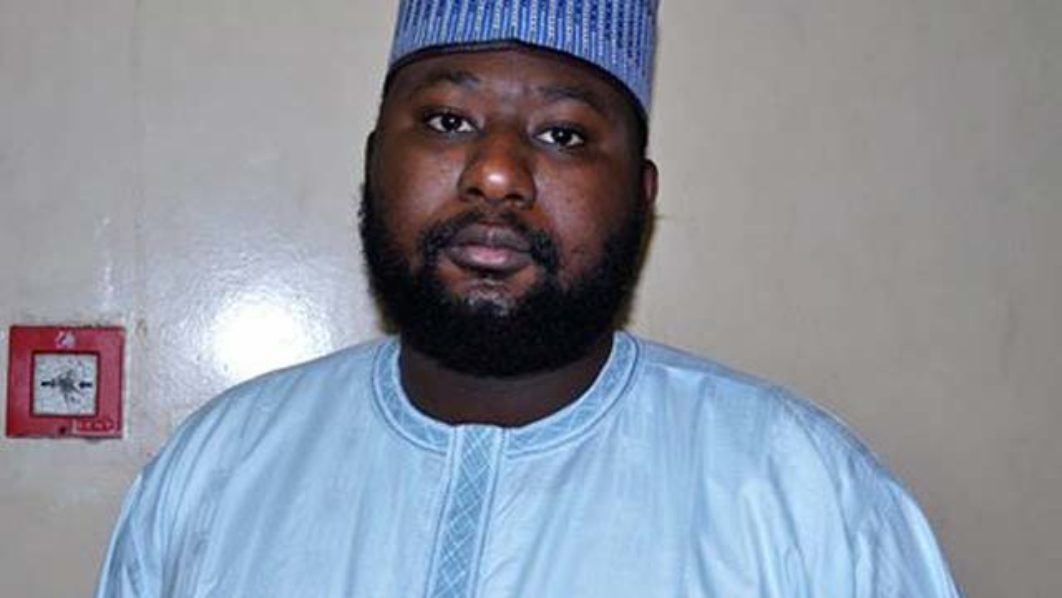In an alarming display of hostility towards the press, Shamsudeen Bala Mohammed, son of Bauchi State Governor Bala Mohammed, has issued threats to Haruna Mohammed Salisu, the publisher of WikkiTimes, a reputable news platform. The conflict arose after Haruna reached out to Shamsudeen for his reaction to an ongoing investigative report being worked on, which reportedly touched on issues that may implicate the governor’s son.
According to WikkiTimes, Shamsudeen responded with a series of aggressive statements, targeting Haruna personally and questioning the legitimacy of the investigation. In his remarks, Shamsudeen made it clear that he would hold Haruna as his enemy “forever,” raising concerns about the threats faced by investigative journalists in Nigeria, especially those covering politically sensitive matters.
The tension escalated when Shamsudeen challenged Haruna to reveal his location, even suggesting that Haruna should disclose where his server was based, should the investigation prove false. “If you aren’t a coward, reveal your whereabouts, give us your address and where you are alongside your server so that we can institute litigation against you if you lie,” Shamsudeen told the journalist, implying that legal actions would be pursued against WikkiTimes.
He further asserted that it was only the court that had the authority to determine whether Haruna’s investigation was legitimate or not. “I think the court should be the one to show you if what you are trying to substantiate is right or wrong,” Shamsudeen was quoted as saying, expressing his distrust in the journalist’s methods of inquiry. He likened WikkiTimes’ work to that of other investigative platforms such as Sahara Reporters and Premium Times, insinuating bias and an agenda-driven motive behind the investigative report.
In what seemed like an attempt to preemptively clear his name, Shamsudeen claimed that there were no ties between himself and any financial misconduct in Bauchi State. He described the ongoing investigation as a mere product of street rumors, dismissing it as misinformation. “Although I am not a public servant and I believe you are misinformed, there is nothing in Bauchi State that is linked to me on issues bordering funds or anything,” Shamsudeen stated, further alleging that the report was driven by bias. He accused Haruna and WikkiTimes of working under external influences, claiming that they had a “paymaster” behind their investigations.
The growing hostility towards investigative journalism in Bauchi State comes against the backdrop of several reports by WikkiTimes that have scrutinized issues related to corruption and accountability within the state government. Shamsudeen’s harsh response seems to be another chapter in the ongoing battle between the state’s political elite and independent journalists who seek to hold power to account.
While threatening Haruna, Shamsudeen attempted to paint himself as innocent, claiming that he had no business operations in Bauchi. He insisted that he had not engaged in any contracts or deals in the state, stating, “No company of mine is executing any contract in Bauchi but you are free to do whatever you like. This isn’t the first time you are doing this.” He added that while he would be willing to clear his name if necessary, silence could also serve as an answer if the claims in the report were unsubstantiated.
These threats have raised concerns about the safety and freedom of investigative journalists in Bauchi State. WikkiTimes, known for its hard-hitting reports, has frequently found itself in the crosshairs of the Bauchi state government, particularly on issues relating to corruption and transparency. The news platform has endured government pressure on multiple occasions, including efforts to undermine its credibility and stifle its coverage of sensitive matters.
The threat issued by Shamsudeen Bala Mohammed highlights the challenges faced by journalists operating in politically charged environments. While investigative reporting plays a crucial role in promoting transparency and accountability, the risks associated with such work are increasingly evident, as evidenced by the tension between WikkiTimes and Bauchi’s political establishment.
The unfolding situation draws attention to the broader issue of press freedom in Nigeria, where investigative journalists are often met with threats, intimidation, and legal challenges. The fate of Haruna Mohammed Salisu, and other courageous reporters like him, will depend not only on their resilience but also on the support of the public and media organizations that advocate for a free press.




